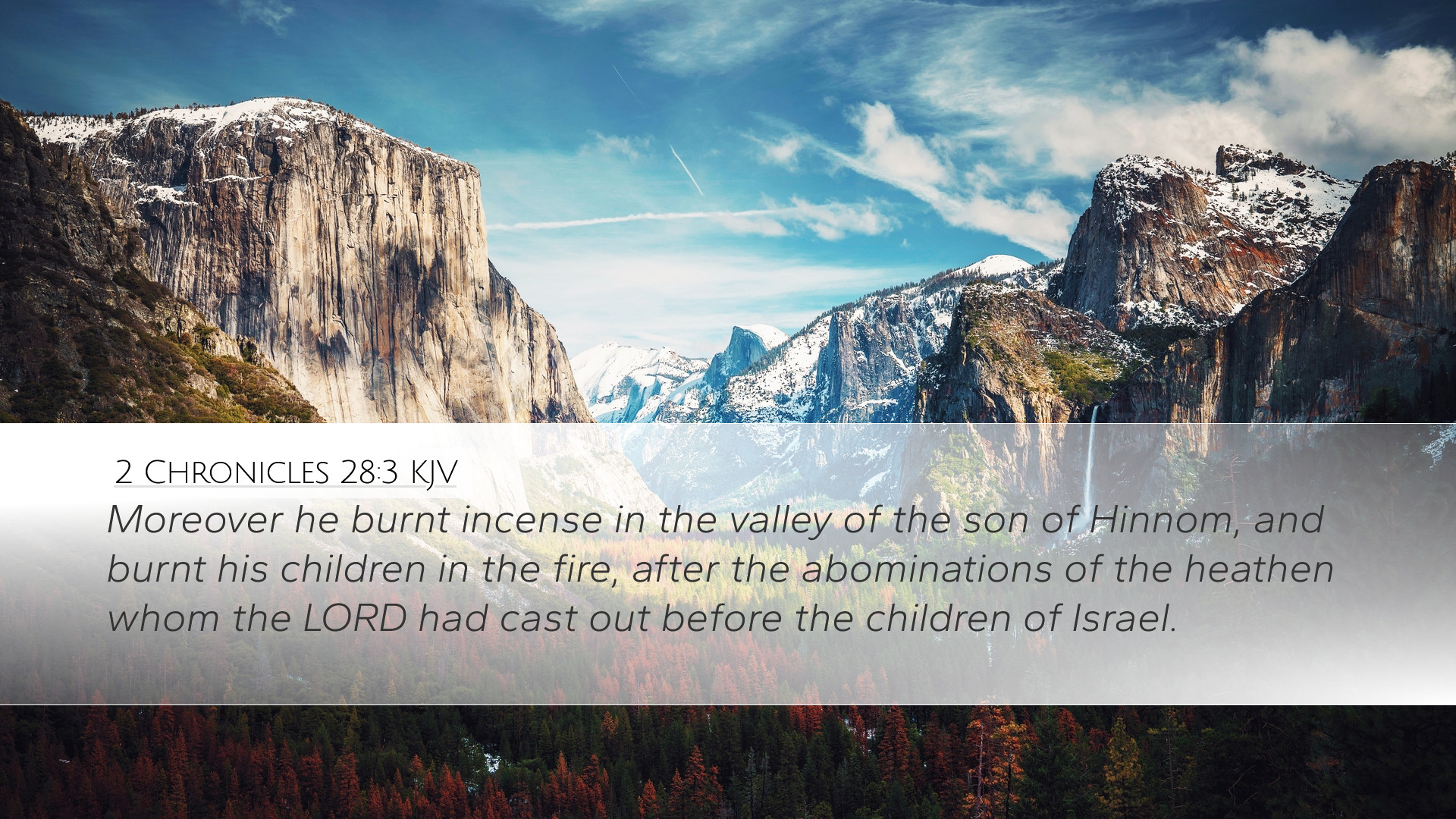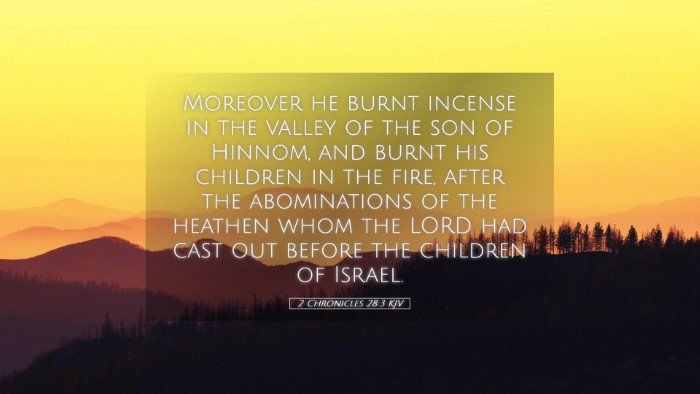Commentary on 2 Chronicles 28:3
2 Chronicles 28:3 states: "Moreover, he burned incense in the valley of the son of Hinnom, and burnt his children in the fire, after the abominations of the heathen whom the Lord had cast out before the children of Israel."
This verse stands as a stark reminder of the grave consequences of turning away from God's commandments.
Contextual Analysis
The context of this chapter revolves around King Ahaz of Judah, whose reign was marked by a series of negative actions against God's law. His practices, particularly the horrific act of child sacrifice, highlight the dire spiritual state of Judah during this period.
Historical Background
- Ahaz's Reign: Starting around 735 BC, Ahaz was influenced by surrounding pagan cultures, leading him to adopt their practices.
- Influence of Israel: During Ahaz’s reign, the northern kingdom of Israel was a significant influence, which also led him away from Yahweh.
The Meaning of Child Sacrifice
Child sacrifice, particularly in the context of the valley of Hinnom, signifies a deeply entrenched pagan worship practice. The valley, known as a place of idolatry, became synonymous with sin and depravity.
The Insights from Commentators
Matthew Henry
Henry emphasizes the abhorrence with which God must view such actions. He notes that Ahaz's decision to burn incense and offer his children reflects not just personal depravity but a corporate failing of the nation.
Albert Barnes
Barnes remarks on the direct violation of the Mosaic Law, specifically Leviticus 18:21, where such practices are condemned. He asserts that Ahaz's actions exemplify the results of idolatry which leads to moral and spiritual decline.
Adam Clarke
Clarke provides a poignant commentary on the implications of Ahaz's actions for the nation. He underscores the severity of turning to foreign gods and away from the covenant with Yahweh, resulting in alienation and divine judgment.
Spiritual Lessons
- Consequence of Idolatry: This verse serves as a vital warning against the embrace of cultural practices that contradict Biblical teachings.
- Importance of Covenant Faithfulness: It emphasizes the necessity for leaders to remain faithful to God's covenant, as their choices impact the entire community.
- God's Judgment: The horrific acts of Ahaz show that God does not overlook sin; instead, His judgment is just and inevitable.
Application for Today
The ramifications of 2 Chronicles 28:3 resonate with contemporary issues. Pastors and theologians are called to address how cultural influences can lead believers away from the teachings of scripture.
Guidelines for Modern Believers
- Awareness of Cultural Idolatry: Identifying modern equivalents of idolatry helps believers guard their hearts against turning to contemporary practices that may conflict with their faith.
- Leadership Accountability: It is crucial for leaders to maintain ethical and spiritual integrity, influencing their communities positively.
- Encouragement of Righteousness: Encouragement to engage in practices that foster spiritual growth rather than lead to spiritual decay.
Conclusion
2 Chronicles 28:3 serves as a sobering reminder of the consequences of straying from God’s commandments. The insights from historical context, Biblical commentary, and modern application all converge to emphasize the importance of fidelity to God's Word. For students, pastors, and scholars, this passage is a clarion call to uphold the sacredness of life, the seriousness of leadership responsibility, and the necessity of unwavering faithfulness in a world rife with competing ideologies.


